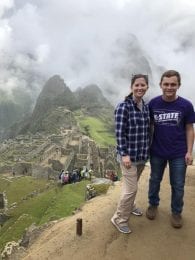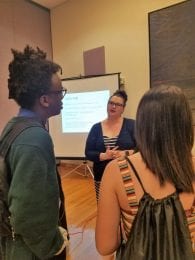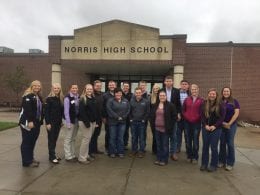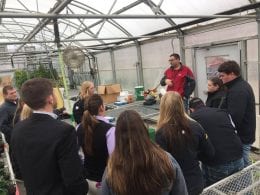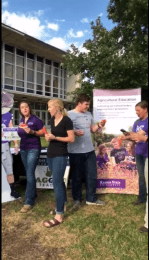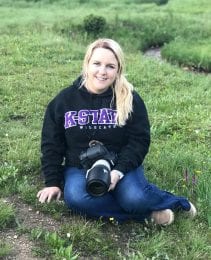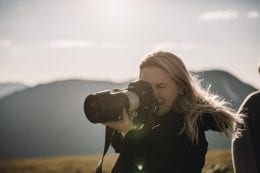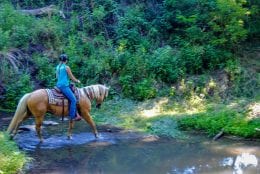On October 28, the Kansas State University Meat Judging Team brought home the first-place cup from the Cargill High Plains Meat Judging Contest in Friona, Texas. K-State won overall team as well as first place in beef grading, total beef and specifications. The team scored an impressive perfect score of 400 in specifications, a difficult feat that rarely happens.
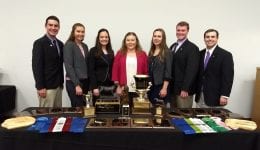 K-State had three students place in the top 10 individuals. Twelve schools from across the nation competed at the Cargill contest.
K-State had three students place in the top 10 individuals. Twelve schools from across the nation competed at the Cargill contest.
The contest consists of placing 10 classes including beef, pork and lamb carcasses, two classes of beef cuts and two classes of pork cuts. Students also must write reasons on five of those classes, identify specification defects and quality and yield grade 15 beef carcasses.
Certain specifications are set by the USDA to ensure meat is similar by different companies. Contestants must know these specifications and identify any defects the cuts may have. Grading beef carcasses determines the value the carcass has to the consumer. In the contests, students grade the quality of carcasses based on the degree of marbling in the ribeye. Yield grades must be calculated to the nearest tenth while factoring in the carcass’s ribeye size, fat and weight.
Each part of the competition is timed, which forces students to be concise and accurate in their decision-making process. Along with decision-making skills, students gain knowledge of the meat industry and make connections with other students, professors and industry professionals.
“Achieving a perfect team specification score and being only the second K-State meat judging team to win Cargill made this contest the most memorable of this fall,” said Kaci Foraker, junior in agricultural communications and journalism. “This contest had some of the most challenging classes we had encountered all year. It was rewarding to have our hard work and long hours spent practicing pay off.”
The team competed in their final competition on November 11 at the International Intercollegiate Meat Judging Contest in Dakota City, Nebraska.
Travis O’Quinn, associate professor of animal sciences and industry, coaches the team. Members include: Cole Liggett, Dennison, Ohio; Grace Luebcke, Marysville, Kansas; Hannah Taylor, Arlington, Wisconsin; Kaci Foraker, Burrton, Kansas; Keayla Harr, Jeromesville, Ohio; Leah Parsons, Leavenworth, Kansas; and Sam Davis, Madison, Kansas.
 Eric Koehlmoos, senior in agricultural education, was named the 2018 National FFA Star in Agriscience.
Eric Koehlmoos, senior in agricultural education, was named the 2018 National FFA Star in Agriscience.


